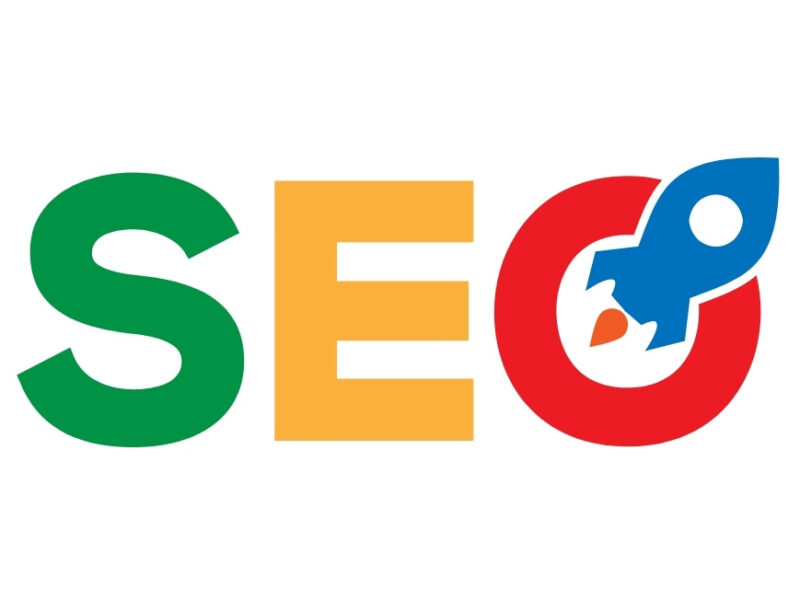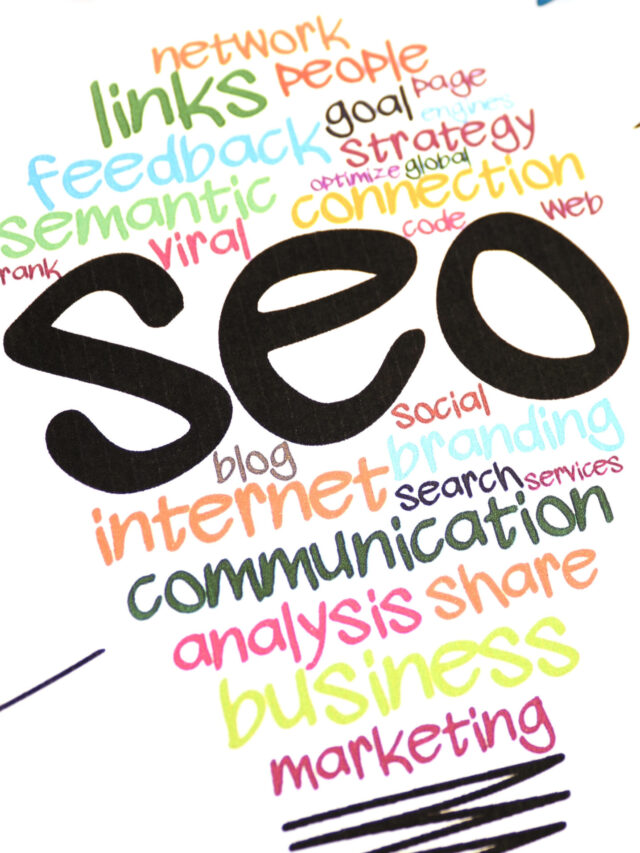On this page you will read detailed information about What Is SEO.
In the ever-evolving landscape of digital marketing, understanding Search Engine Optimization (SEO) is essential for anyone aiming to enhance their online presence. As you navigate this intricate field, you will discover that SEO is not merely about keywords and rankings; it is a comprehensive strategy designed to increase a website’s visibility on search engines. By delving into the basics of SEO, you will uncover the techniques and principles that can transform your digital footprint, ensuring that your content reaches its intended audience effectively and efficiently. Embrace this journey into SEO, where innovation meets strategy and success follows.
Understanding SEO: What is Search Engine Optimization?
Defining SEO
Search Engine Optimization, often abbreviated as SEO, is a crucial component of digital marketing that focuses on enhancing a website’s visibility on search engines such as Google and Bing. When executed effectively, SEO increases the quality and quantity of website traffic through organic search results. But what exactly does this entail? At its core, SEO involves optimizing a website’s content and structure to make it more appealing to search engines. This means incorporating relevant keywords, improving site speed, and ensuring the site is mobile-friendly.
Key Elements of SEO
SEO is not a singular concept but rather a multifaceted approach that includes several key components:
- On-Page SEO: This involves optimizing individual pages on your website. It includes keyword optimization, meta tags, and improving user experience.
- Off-Page SEO: Activities outside the boundaries of your website that impact your rankings, like backlink building and social media marketing.
- Technical SEO: Ensures that a website meets the technical requirements of modern search engines. This includes improving the site’s architecture, crawling, and indexing.
Why SEO Matters
Understanding what is SEO and its importance is vital for any business looking to succeed online. SEO helps you connect with your target audience by increasing your site’s visibility and credibility. As more users find your content relevant to their search queries, it not only boosts traffic but also enhances user engagement and conversion rates. In essence, SEO is a long-term investment that builds brand authority and trust, offering higher returns over time.
By mastering search engine optimization, you can ensure your digital presence is strong, competitive, and able to adapt to the ever-changing algorithms of search engines.
The Core Components of SEO: Keywords, Content, and Links
Keywords: The Foundation of Search Visibility
Keywords are the bedrock of search engine optimization (SEO). They are the terms and phrases that potential customers use when searching for information online. To harness their power, it’s essential to conduct thorough keyword research to identify which terms are most relevant to your industry and audience. Using tools like Google Keyword Planner can help you discover high-volume and low-competition keywords. Once identified, these keywords should be strategically integrated into your website’s content. This includes titles, headings, and throughout the text, ensuring a natural flow to maintain readability.
Content: The Heart of SEO
Quality content is central to any effective SEO strategy. Search engines prioritize content that is not only relevant but also valuable and engaging. When creating content, aim to address the needs and questions of your audience. This approach enhances user experience, keeping visitors on your site longer and increasing the likelihood of conversions. Content should be fresh, diverse, and regularly updated, incorporating various formats such as blogs, videos, and infographics. By aligning your content with targeted keywords, you ensure it ranks higher in search engine results, driving more organic traffic to your site.
Links: Building Authority and Credibility
Links, both internal and external, play a crucial role in establishing your website’s authority and boosting its search engine ranking. Internal links connect different pages within your site, helping to distribute page authority and guiding visitors to relevant content. External links, or backlinks, come from other reputable websites and signal to search engines that your site is trustworthy and authoritative. Building a robust link profile involves creating compelling content that others naturally want to link to, as well as reaching out to industry influencers and participating in guest blogging opportunities. By focusing on high-quality links, you enhance your site’s credibility and improve its SEO performance.
On-Page vs Off-Page SEO: What You Need to Know
Understanding On-Page SEO
On-page SEO, also known as on-site SEO, refers to the strategies and practices used to optimize individual web pages to rank higher and earn more relevant traffic from search engines. This involves adjusting various elements on your webpage, including:
- Keywords: Incorporating relevant keywords naturally within your content, titles, and meta descriptions is crucial. This helps search engines understand the context of your page.
- Content Quality: High-quality, informative, and engaging content is essential. It should provide value to the reader and answer their queries comprehensively.
- HTML Tags: Proper use of HTML tags like H1, H2, and H3 helps organize content and signals the structure to search engines.
Paying attention to these on-page elements ensures that your website is both user-friendly and easily accessible to search engines, thereby enhancing your site’s search engine optimization.
Exploring Off-Page SEO
Off-page SEO, on the other hand, involves activities conducted outside your website to impact your search engine rankings. The primary goal here is to improve your site’s authority and reputation through:
- Backlinks: Gaining links from reputable websites is a cornerstone of off-page SEO. These backlinks act as endorsements, signaling to search engines that your content is valuable and credible.
- Social Media Presence: Active engagement on social media platforms can drive traffic and enhance your brand’s visibility. Sharing your content widely encourages inbound links and boosts your site’s authority.
- Guest Blogging: Contributing articles to other relevant, high-domain authority blogs can increase your reach and create opportunities for backlinks.
By understanding the balance between on-page and off-page SEO, you can craft a comprehensive strategy that enhances your search engine optimization efforts, ultimately leading to better visibility and higher rankings.
The Role of SEO in Digital Marketing Strategies
Enhancing Visibility and Reach
In the digital age, where competition for attention is fierce, Search Engine Optimization (SEO) plays a pivotal role in digital marketing strategies. By optimizing your content for search engines, you significantly increase the visibility of your website, making it more accessible to potential customers. When your website ranks higher in search engine results pages (SERPs), it attracts a greater number of clicks, driving more traffic and expanding your reach. This increased visibility not only helps in attracting new customers but also reinforces brand awareness and trust.
Driving Targeted Traffic
One of the core benefits of incorporating SEO into your digital marketing strategy is its ability to drive targeted traffic to your website. Unlike other marketing tactics that may reach a broad audience, SEO focuses on attracting users who are actively searching for products or services similar to yours. By employing relevant keywords and optimizing content, you ensure that your website appears to individuals with genuine interest in what you offer. This targeted approach enhances the likelihood of conversion, as these visitors are already inclined towards making a purchase or engaging with your brand.
Supporting Long-Term Growth
SEO is not merely about immediate results; it’s a long-term investment that supports sustainable growth. Unlike paid advertising, which ceases to bring traffic once the budget is depleted, effective SEO practices continue to yield benefits over time. By consistently creating high-quality, optimized content, your website can maintain a strong online presence and achieve enduring organic traffic. This enduring visibility is crucial for businesses aiming to build a stable digital foundation and foster long-lasting relationships with their audience. In essence, investing in SEO is investing in the future of your business.
In the previous post, we had shared information about B2B SEO: Crafting an Effective Strategy for Your Business, so read that post also.
How SEO Can Drive Traffic and Grow Your Business
Increase Visibility and Reach
Search Engine Optimization, or SEO, is pivotal in enhancing your business’s online visibility. By optimizing your website’s content and structure, you can ensure that your business appears prominently in search engine results. This increased visibility allows potential customers to discover your offerings more easily. When users search for terms related to your products or services, appearing on the first page of results dramatically increases the chances of them visiting your site. By focusing on what is SEO, businesses can tap into a broader audience without incurring the costs associated with traditional advertising.
Build Credibility and Trust
Another advantage of SEO is its ability to establish and build credibility and trust with your target audience. Websites that consistently rank higher in search results are often perceived as more authoritative and trustworthy. This perception can be strengthened by employing various SEO strategies, such as optimizing for user experience, ensuring mobile compatibility, and maintaining a secure website. Over time, these efforts contribute to an enhanced reputation, making your business a trusted source in the eyes of potential customers.
Enhance User Experience
SEO is not just about pleasing search engines but also about creating an excellent user experience. By improving page load speeds, ensuring easy navigation, and delivering relevant content, SEO efforts can significantly enhance the overall user experience. When visitors find your site easy to use and informative, they are more likely to stay longer, explore further, and eventually convert into paying customers. This focus on user experience is an integral part of effective search engine optimization.
By prioritizing SEO, businesses can drive sustainable growth, attract a wider audience, and ultimately, increase their revenue potential. Understanding and implementing what is SEO is an investment that pays dividends in the digital marketing landscape.
Conclusion
As you delve into the dynamic world of digital marketing, understanding SEO becomes not just beneficial, but essential. By mastering the basics of SEO, you empower your online presence, enhancing visibility and engagement in an increasingly competitive landscape. This foundational knowledge allows you to navigate search engine algorithms with confidence, ensuring your content reaches its intended audience. As the digital realm continues to evolve, staying informed and adaptable will be your greatest assets. Embrace SEO as a vital tool in your marketing arsenal, and you will not only keep pace with change but thrive in the digital age.
Disclaimer
The content published on the Marketyra blog is for educational and informational purposes only. While we strive to share accurate and up-to-date digital marketing tips, strategies, and trends, we do not guarantee any specific results. Readers are advised to use their own judgment before applying any tips or advice provided. Marketyra is not liable for any losses, damages, or issues arising from the use of blog content.
So friends, today we talked about What Is SEO, hope you liked our post.
If you liked the information about What Is SEO, then definitely share this article with your friends.
👉 Need help with SEO or digital marketing services?
Feel free to call us at 📞 +91-9306925861, email us at 📧 admin@marketyra.com to get in touch!






